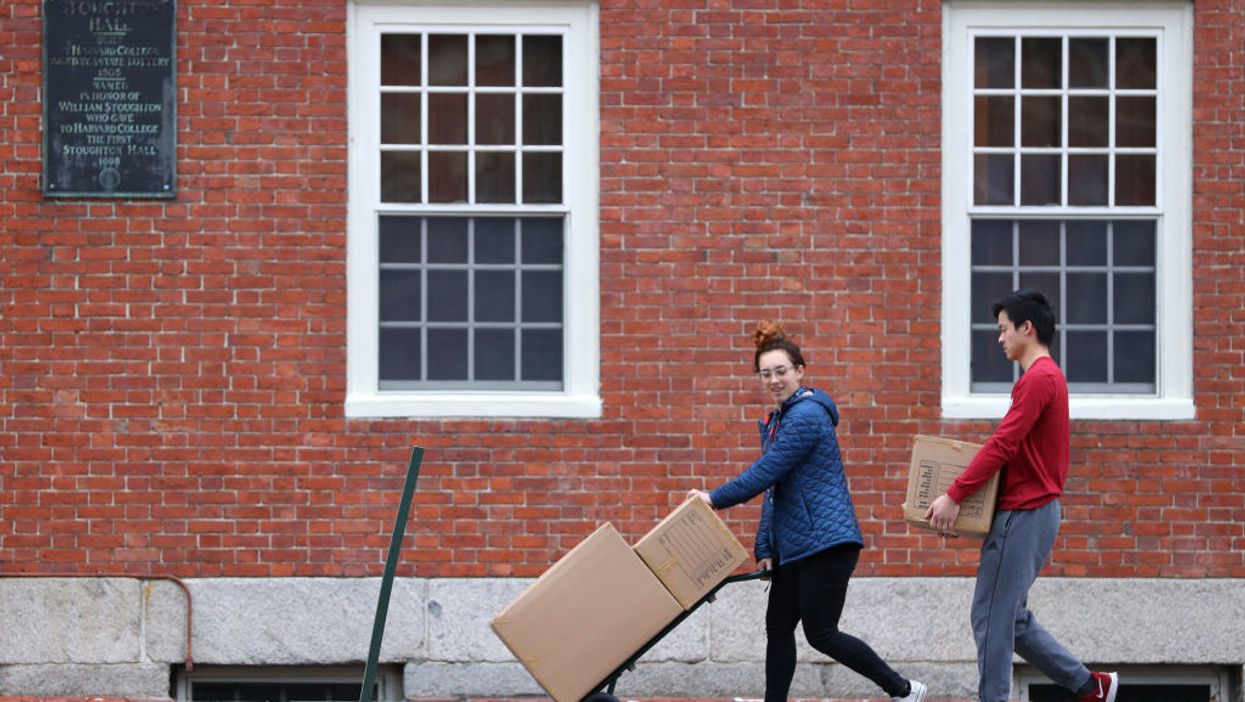
Photo by Maddie Meyer/Getty Images

It's only fair, they say
Students at Yale University and Harvard University are urging the schools to implement a "universal pass" grading system amid the coronavirus outbreak ensuring that all students receive credit for their classes, the College Fix reported Friday.
A universal pass system would result in students receiving credit for every class they are currently enrolled in for the spring semester without any possibility of failure. The students would simply receive a "P" ("pass") on their transcripts instead of letter grades.
The measure was first proposed at Yale, where a coalition of undergraduates advocated for it on the basis of "equity."
According to the Yale Daily News, one of the students who is a proponent of the measure argued that "requiring undergraduates — many burdened by sickness, hectic home lives or living thousands of miles away from the University — to devote the same level of attention and focus to their classes as they would in the Elm City seems unfair."
On the other hand, "universal pass is just a very fair grading system," she added. "People come from different circumstances."
The argument for the measure hangs on the notion that, for many, campus was an equalizer. Now that students are forced away from campus, those who have consistent internet access and a stable home setting will have an inherent advantage, proponents say.
Critics of the universal pass system argue the problem would best be solved by an "opt-in" model, where students could choose whether or not they would like to forgo letter grades and instead adhere to a pass/fail system.
According to the report, Computer Science professor David Gelernter is among the critics. He argued that failure is a part of life: "If you don't take risks you aren't living, you're just rehearsing," he wrote in an email to the Yale Daily News.
A commenter on the article also shared his sentiment and argued that a universal pass system is not as equitable as it may first appear.
"I think professors can be more relaxed about grading without skipping grades entirely. What if someone does no work and someone else works hard at it, but they each receive a 'universal pass?' Does that result in equity?" the commenter asked.
At Harvard, students already have the option to take some of their classes on a pass/fail basis due to the coronavirus shutdown. But, taking their cues from Yale, some students feel that the current measure is "Insufficiently equitable," reported the Harvard Crimson.
"Given the variety of conditions that students are facing right now at home — whether that's limited internet access, or having to find a way to make money for the families, or the stress that having another individual in the household brings — it is my belief, and I think the belief in a lot of people in first-gen community, that there should be a different kind of grading accommodation for students during the semester," one student said.
Another student group went even further, suggesting that the school should implement a "Double A model." Under this model, students would either receive an "A" or an "A-minus" — those are the only options.
Proponents of this measure argue that letter grades are important for those students who desire to pursue admission to competitive graduate programs.
Whichever program, if any, is adopted, the school must "equalize" the differences in students' living situations and resources, one student asserted.
"When you're on campus, we all have the same resources," she said. "But when you put us all in different places, Harvard needs to make sure that the grades that end up at the end of semester don't just show differences in income and background."